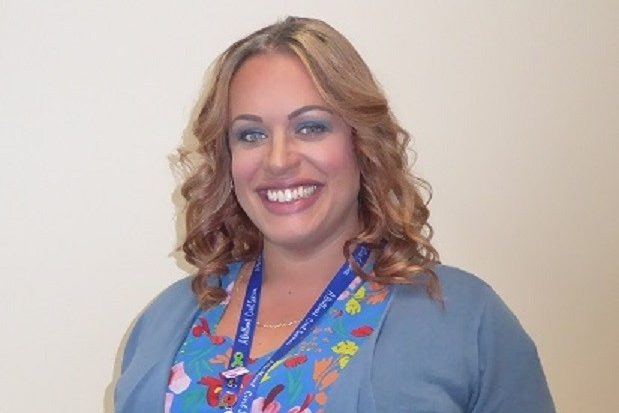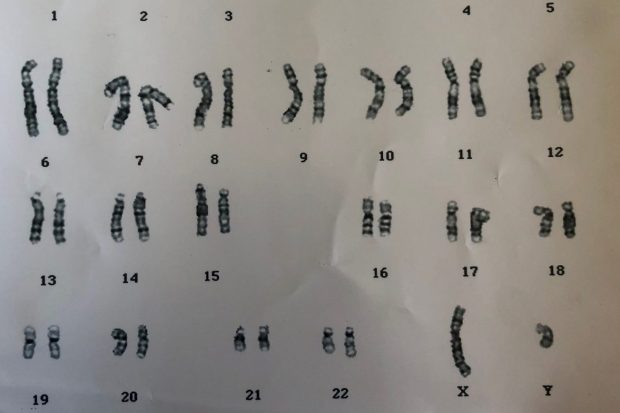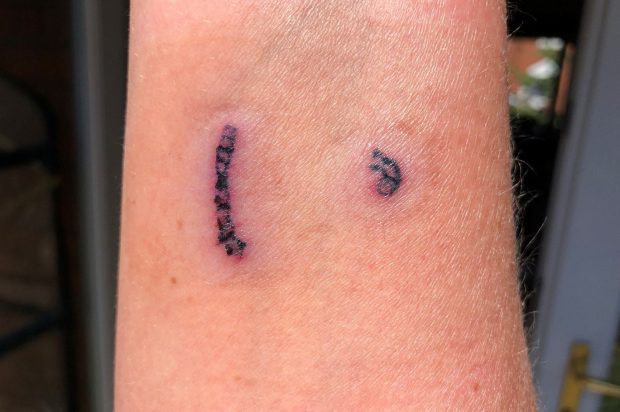
A:gender is the civil service network for trans and intersex civil servants. Most people have heard of trans people but do not know what intersex means.
Intersex people are born with bodies that do not fit binary notions about male and female.
Sometimes it is obvious that a baby is intersex because of visible differences at birth, but many intersex babies look typically male or female and so many people do not find out they are intersex until puberty or after issues with infertility, and some only find out by chance even later in life.
I joined a:gender because I am intersex.
Many of my friends already know, but it has taken me a long time to pluck up the courage to be completely open about this.
The way I was treated and spoken to by medical professionals during my diagnosis made me feel guilty and ashamed about my intersex status for many years, but being a member of a:gender, and Her Majesty's Land Registry (HMLR)’s Assured Network has made me accept and even be proud of who I am.
Being intersex is a totally natural and normal variation of human development, so there is no reason I should feel ashamed.
 There are lots of ways to be intersex, my variation was discovered at puberty; I did not have periods because I did not develop ovaries. At the time the doctors were evasive about what had caused this, but I eventually found out it was because I have XY chromosomes, which also explains why I am so tall (I am six foot in my socks)!
There are lots of ways to be intersex, my variation was discovered at puberty; I did not have periods because I did not develop ovaries. At the time the doctors were evasive about what had caused this, but I eventually found out it was because I have XY chromosomes, which also explains why I am so tall (I am six foot in my socks)!
Finding out I am intersex was tough to deal with as a teenager and it does cause me some health problems, I have to take some hormones orally and have others implanted in my skin to keep me healthy but I am not alone; 1.7% of the population are thought to be intersex, it is as common as having red hair.
I started attending a:gender meetings a few years after joining the network after I “came out” to our old Head of Diversity and she insisted I went for support.
Meeting a group of people who just totally accepted me for who I was gave me the courage to be open about myself and the challenges I and other intersex people face.
Before I knew it, I was involved with several other departments, giving advice and training and talking about my first-hand experiences to people to help them understand the inequalities intersex people face and to help them overcome this in their own departments.
I think my self-acceptance became complete when my lovely Dad died in May. Suddenly that pesky Y chromosome that I inherited from him seemed much more precious.
After he died, my mum was clearing out the loft and found a bundle of correspondence from when I was diagnosed, and amongst it all was the original chromosome results from one of my blood tests. I have now had the XY chromosomes tattooed on my arm, and some of Dad’s ashes are mixed with the ink.

It symbolises how proud I am to be his daughter and reminds me that a part of him will always be with me.
We have a long way to go to educate people that sex, just like gender, is not always binary and to normalise being intersex. Many people do not even realise intersex people exist, much less have any understanding of the challenges we face.
I am hoping I will live long enough to see specific protection for intersex people in equality legislation and more importantly an end to unnecessary and non-consensual surgery on intersex infants to assign them to a binary sex (known to campaigners as Intersex Genital Mutilation, or IGM).
I would also like to see intersex people gain the ability to obtain accurate documentation like birth certificates, passports and driving licences that legally recognise them for who they are.
It is a massive challenge, but it is heartening how keen people are to engage.
Subscribe to this blog for more stories from inspirational women. You can also follow Suffrage Centenary on Twitter.
5 comments
Comment by Wendy posted on
Great Blog! We are all very proud of Emma and the work that she does both within HMLR and other departments.
Comment by Emma Dunn posted on
Thanks Wendy, that's really kind. I'm so grateful to my colleagues at HMLR for their encouragement and support, and I'm very lucky to have such a great employer who is so committed to equality and inclusion.
Comment by Lucy posted on
Emma, thank you for sharing your story and shining a light on some issues we usually hear little about. I'm so impressed with your openness and your hard work to improve acceptance and understanding for intersex people. All the best for your efforts!
Comment by Emma Dunn posted on
Thanks Lucy. I feel very privileged to be able to raise awareness in this way, and touched that people genuinely care so much about making the civil service a truly diverse and inclusive place to work. Thank you so much for being one of those people and for your kind words of support.
Comment by Genny posted on
I work in HMLR also - Emma is so positive, engaging and tireless in her support for diversity and inclusion, and raising awareness of difficult or little known areas, as her blog shows. She was deservedly shortlisted for a Civil Service award for championing Lesbian Gay Bisexual Transgender and Intersex Inclusion, in recognition of her work with HM Land Registry’s Assured network and with A:gender.